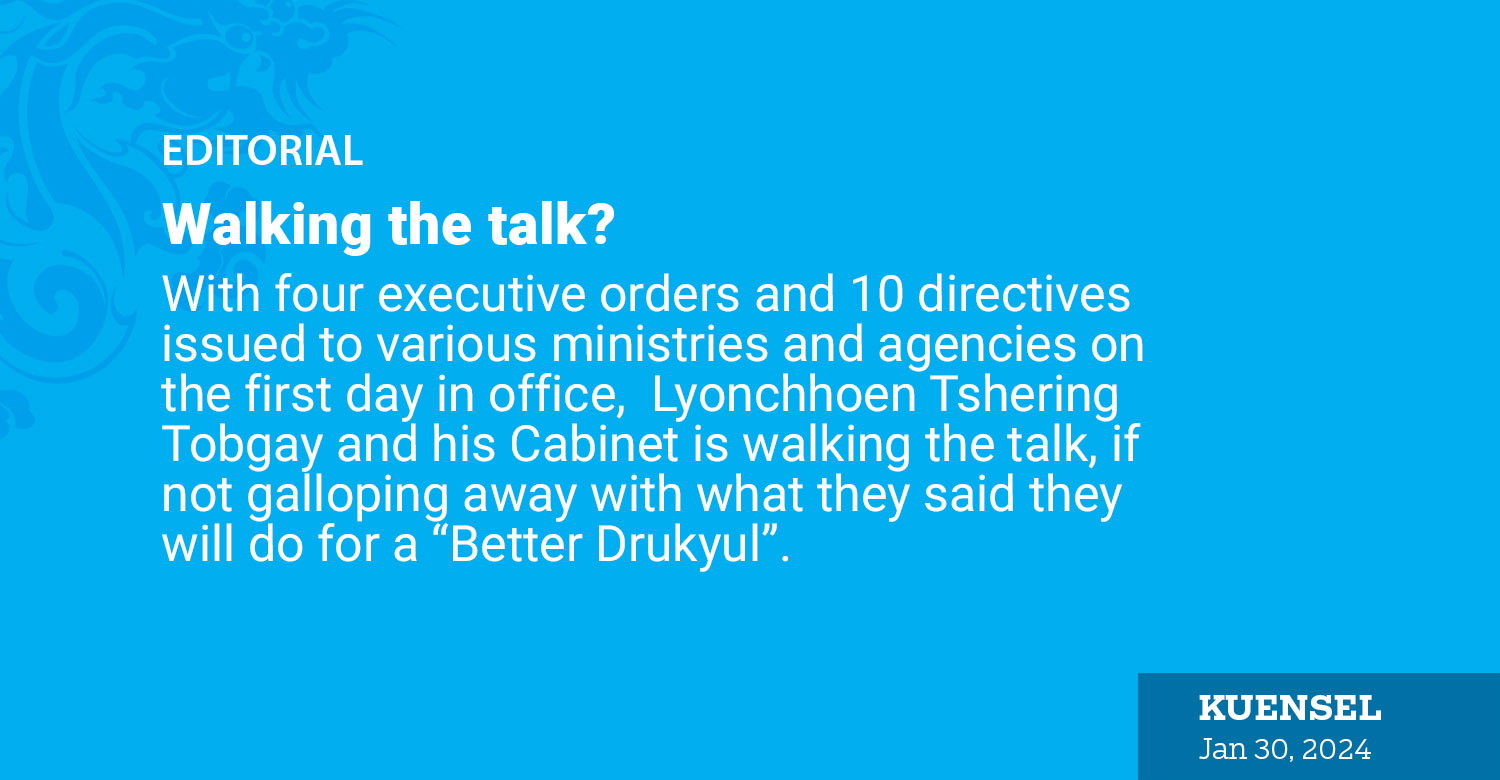With four executive orders and 10 directives issued to various ministries and agencies on the first day in office, Lyonchhoen Tshering Tobgay and his Cabinet is walking the talk, if not galloping away with what they said they will do for a “Better Drukyul”.
The Nu 10 entry fee at the Phuntsholing pedestrian terminal will be done away from today. An Economic Development Board will be established within a month, a high-level task force will be established to formulate the implementation plan for the Nu 15 Billion Economic Stimulus Plan, a committee will study the regularisation of contract employees, and the tenancy agreement for residents of Changjiji colony will be reviewed.
Moreover, Saturdays could become days off for teachers, the controversial IWP would be reviewed, policies will be reviewed to ease doing business for the private sector together with the Foreign Direct Investment policy while directing to develop a comprehensive action plan to increase tourist arrivals.
There is no looking back, it seems, as the new government, with urgency, wants to live up to what it said when they were campaigning to bring changes, revive the economy and make Bhutan a better place. No one can stop them. It is a Cabinet decision. All government ministries and relevant agencies were given deadlines and within two to four months, reports had to be submitted.
The Prime Minister on his first day in office had met the health secretary and the President of the National Medical Services, and recommended the urgency to ensure effective and reliable services at the national referral hospital.
The executive orders and the directives are the topics of discussions, with many applauding the newly elected government for the swift actions taken to live up to their words. Not many are questioning, even if disagreeing with the directives. There will be responses from the agencies to convince the government of what and why they resorted to the current policies.
While the directives, many agree, would improve service delivery, ease the bureaucratic hurdles in doing business and improve public services, some are left wondering if national policies like sustainable development fee levied on tourists, the reforms in the education system and other reforms which were enforced with much difficulty, are being undone.
This includes directives of the transformation team and hired experts who had been breathing down the neck of agencies to change – mainly for revenue enhancement. For instance, the low-income housing in Changjiji should cater to the low income and not those who own property in the capital city or live there for a decade if they are transferred. The real low-income could benefit with the directives.
Meanwhile, the private sector, dubbed as the engine of growth, could see the fuel to grow with directives to review FDI policy, ease of doing business and increase tourist arrivals. Many didn’t comprehend if an elected government could undo the several reforms initiated in the past. If a new government can fulfill the wishes of the people through reforming the reforms and result in a “Better Drukyul,” it is worth taking the initiative or the risk. Like one said after seeing the Cabinet press release, the new government is hardened with the Ngar to bring changes.


